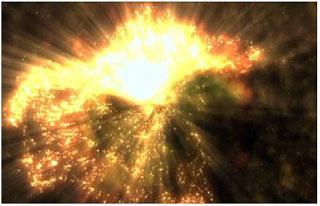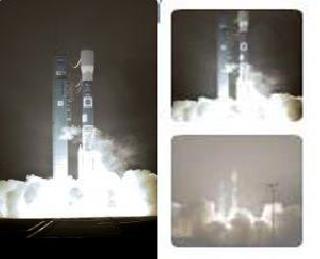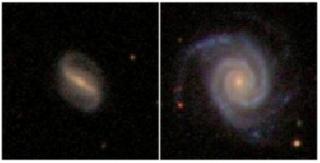
The Big Bang was the event which led to the formation of the universe.
GENEVA, SWITZERLAND (BNS): Scientists on Monday have reproduced the 'mini Big Bang' at the Large Hadron Collider (LHC) by smashing together lead ions instead of protons.
The particle accelerator at the CERN laboratory near Geneva smashed together lead atoms for the first time to produce temperatures a million times hotter than the heart of the Sun, reports BBC.
The heavyweight particle collisions follow seven months of earlier experiments crashing protons - which are 200 times lighter than lead ions - at near-light speeds.
The $10 billion machine was used in an effort to learn more about the plasma that formed the universe a split- second after the Big Bang 13.7 billion years ago. LHC had previously been colliding protons — sub-atomic particles — in the search for the Higgs boson that is thought to give matter its mass.
"We are thrilled with the achievement. The collisions generated mini Big Bangs and the highest temperatures and densities ever achieved in an experiment," David Evans, of Birmingham University, U.K, was quoted as saying according to media reports.
Scientists, including British particle physicists, will now study the particles in the hope of discovering what holds atoms together and gives them their mass.
 Previous Article
Previous Article Next Article
Next Article













The Indian Air Force, in its flight trials evaluation report submitted before the Defence Ministry l..
view articleAn insight into the Medium Multi-Role Combat Aircraft competition...
view articleSky enthusiasts can now spot the International Space Station (ISS) commanded by Indian-American astr..
view article